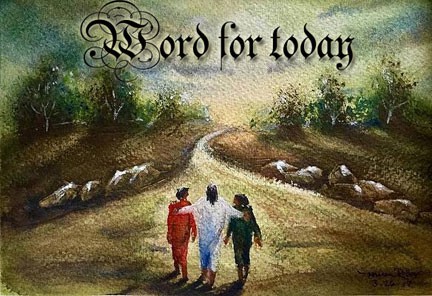Watch
Events
Articles
Market
More
Tribulation is an experience of suffering, distress, affliction, trouble, or persecution. The Greek word appears in the New Testament much more than the Old Testament. In the New Testament there are a few references where the word “tribulation” (or variations of it) is used to denote the hardships that occur in the lives of common people. The labour pains of a woman in childbirth (John 16:21), the worldly concerns that arise in marriage (1 Corinthians 7:28), and the affliction of widows (James 1:27) are all described with words that mean “tribulation.” A scourge like the famine that afflicted Egypt and Canaan during the patriarchal age is characterized as “great misery,” a word also linked with tribulation (Acts 7:11). In a narrower sense, the word “tribulation” refers to a specific believer experience. The teachings of Moshiach provide basic definitions for this meaning of “tribulation.” He said that whenever the gospel is present in the world, tribulation becomes unavoidable. As the word of the gospel is sown, tribulation and persecution appear spontaneously (Matthew 13:21). This concept of tribulation during the church age is carefully developed in Yeshua’ teaching on future events (Matthew 24-25). Yeshua’ teaching provides the only explicit description of, and clear chronological reference available in the Bible to, the tribulation of his followers. In it, Yeshua predicted the time of the beginning, the extent, and the end of tribulation. This teaching on the tribulation was handed down to the twelve disciples privately, as a matter directly relevant to their lives (24:3). Yeshua told the Twelve that they would be delivered up to tribulation and that this tribulation would take the form of persecution to the death for his name’s sake (24:9). The context of this teaching indicates that the tribulation taught by Yeshua would affect believers in many places throughout history. But the fact that Yeshua predicted to the twelve disciples that they would fall victim to the tribulation, at the very beginning of the sufferings (24:8), provides a clear reference to the starting point of the tribulation during the disciples’ lifetimes. Likewise, the same group of disciples was to be witnesses of the “great tribulation” that would befall Jerusalem as predicted by the prophet Daniel (Matthew 25:15-21). It is clear that Yeshua was referring to the destruction of Jerusalem in AD 70. The fall of Jerusalem at the hands of the Roman legions was to be viewed as an archetypal representation of the greater tribulation. This is attested to by Matthew’s parenthetical editorial comment in Matthew 24:15 (“reader, pay attention!”), intended to alert his original readers to the fulfilment of Yeshua’ prediction within their lifetimes. Moreover, the parallel section in Luke 21:20-24 makes it clear that the desolation of Jewish Jerusalem would be followed by a long period of Gentile domination, which is precisely what happened after AD 70. The New Testament forewarns believers of the inevitability of tribulation; it also prescribes the appropriate response of believers. They should rejoice because tribulation produces perseverance and strength of character (Romans 5:3-4). They should bear it patiently (Romans 12:12), knowing that YHVH comforts the faithful in all tribulations (2 Corinthians 1:4) and that the present tribulation prepares believers for incomparable glory in eternity (4:17). Except for rare and exceptional circumstances that enable believers to enjoy affluence and freedom, most believers throughout history have suffered tribulation. The normal vocation of the church has been to endure as a beleaguered and persecuted minority in a hostile world. For believers providentially protected from tribulation, it is easy to relegate tribulation to a future period in history. For believers suffering in the throes of opposition, however, the tribulation is an ever-present reality. The virulence and the severity of the tribulation may vary from time to time and from place to place, yet Moshiach’s promise remains true, “In the world you have tribulation; but be of good cheer, I have overcome the world” (John 16:33).



Thought for Today: Friday August 15
So often when satan mounts an attack against us, we behave as if we were prisoners of war, or worse, conscientious objectors…! YHVH wants us to live victorious lives --- lives that are constantly conquering sin. There is only one way to have victory over sin. That is to walk closely with the Moshiach that sin no longer dominates your life. It becomes the exception rather than the rule… The Bible says: “Resist the devil and he will flee from you. Draw near to YHVH Elohiym and He will draw near to you” (James 4:7-8)



We have an action-packed bulletin for you to check out for First Fruits Ministries Shabbat service this weekend. Please give it a read: https://firstfruits.cc/blog/20....25/08/14/sabbath-bul



So the Jews grumbled about him, because he said, “I am the bread that came down from heaven.”
John 6:41 ESV
Yeshua wasn't saying that he was literally the manna in the desert, but he was saying that he had come down from heaven. A statement of Yeshua's pre-existence and role in God's plan of redemption.



081425 / 20th day of the 5th month 5786
WORD FOR TODAY “are you going or not?”: Mat 22:3 "And he sent out his slaves to call those who had been invited to the wedding feast, and they were unwilling to come.
WISDOM FOR TODAY: Pro 25:18 Like a club and a sword and a sharp arrow Is a man who bears false witness against his neighbor.
www.BGMCTV.org




We are all supposed to be on a journey but most folks just found a different plot of land to settle down and build on other than the one their church was on (albeit some are still arguing over ownership rights of that same property). We are all supposed to be walking on The Road or The Way but spiritual homesteading is sadly still too attractive for the masses.
That’s primarily why Christianity was a decoy religion: They built a church on one piece of land of so many acres and settled there to stay. It is ever changing but never moving. And they spend all their time calling the lost to come to them to be “saved”.
But there aren’t only “Lost” and “Found” in this life. There are also those profoundly confident they are in the right place and doing the right thing but have never really stepped foot off their property.
Contrarywise, our Savior called us to follow Him, and then He left. We can’t go where He now is, but we can still get heading in that direction. We can still walk as He walked along The Way.
And if we happen to meet anyone on the Journey, we can show them The Way aswell…but only if they are willing. And we can not “save” anyone nor even determine whether or not today have been saved. It is a dangerous Road after all.
Second Guess First Assumptions
Question Everything
Get Biblical
templecrier.com



